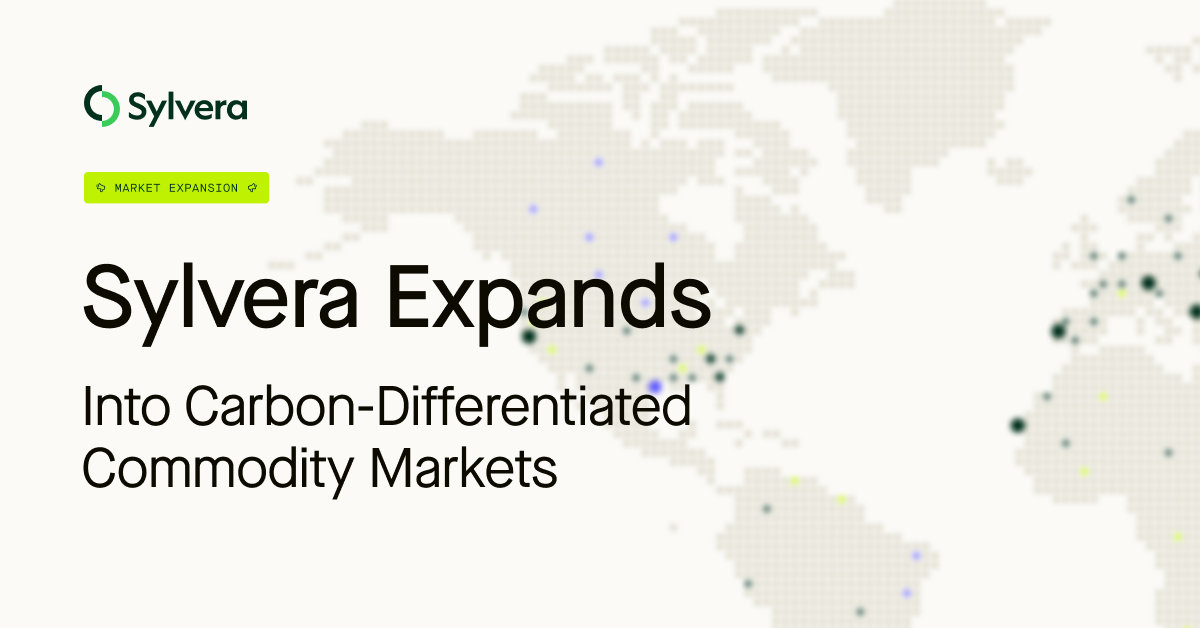“Over the years we’ve invested significantly in our field data team - focusing on producing trusted ratings. While this ensures the accuracy of our Ratings, it doesn’t allow the scale across the thousands of projects that buyers are considering.”
For more information on carbon credit procurement trends, read our "Key Takeaways for 2025" article. We share five, data-backed tips to improve your procurement strategy.

One more thing: Connect to Supply customers also get access to the rest of Sylvera's tools. That means you can easily see project ratings and evaluate an individual project's strengths, procure quality carbon credits, and even monitor project activity (particularly if you’ve invested at the pre-issuance stage.)
Book a free demo of Sylvera to see our platform's procurement and reporting features in action.
Regulators in Singapore are considering adopting climate- and sustainability-reporting standards developed by The International Sustainability Standards Board (ISSB). We support this move towards greater transparency and especially the progress made on requiring disclosures around carbon credit usage.
RECOMMENDATION D1 – Climate reporting should be prepared using the prescribed (baseline) CRD, which mirror the requirements in the ISSB Standards*, to the extent practicable.
*ISSB Standards refer to standards issued by the ISSB in June 2023, comprising:
- IFRS S1 General Requirements for Disclosure of Sustainability-related Financial Information
- IFRS S2 Climate-related Disclosures
19.Question D1(a) – Do you agree with the above recommendation?(optional)
Yes
20.Question D1(b) – Please state the reasons for your response.(optional)
The ISSB standards build upon and progress the work done by the TCFD, and address some of the key gaps in the TCFD guidance such as more stringency in regard to scope 3 emissions, and requiring more transparency over the role of carbon credits. The positive reception of the ISSB Standards suggests that these too will be widely adopted by regulators, as TCFD has been. Adoption in Singapore would therefore align with global norms, allowing interoperability.
RECOMMENDATION D3 – Allow disclosures in compliance with other standards and frameworks to be included in the same report if both conditions are met:
- the standards and frameworks applied are prominently disclosed; and
- the additional disclosure does not contradict or obscure the information required by the prescribed CRD.
23.Question D3(a) – Do you agree with the above recommendation?(optional)
Yes
24.Question D3(b) – Please state the reasons for your response.(optional)
As long as reports contain comparable information in a standard format that is machine-readable, companies should also be able to include additional information to comply with other standards or to provide clarifying information. We agree that the additional conditions suggested here are important and will effectively enable transparency and scrutiny.
RECOMMENDATION E1 – External Limited Assurance should be obtained on Scope 1 and Scope 2 GHG emissions two years after mandatory reporting, i.e.
- Listed companies from FY2027; and
- NLCos with annual revenue of at least S$1 billion from FY2029.
25.Question E1.1(a) – Do you agree with the above recommendation?(optional)
Yes
26.Question E1.1(b) – Please state the reasons for your response.(optional)
The task of calculating GHG emissions is complex and novel to many organisations, and there is therefore reasonable risk of inadvertent errors in calculation and reporting. External assurance is an effective solution to minimise this risk, whilst also helping to build trust and credibility in reported information and disclosure processes.
RECOMMENDATION F2 – CRD should be filed in a digital structured format to facilitate the consumption of data.
44.Question F2(a) – Do you agree with the above recommendation?(optional)
Yes
45.Question F2(b) – Please state the reasons for your response.(optional)
One significant benefit of disclosures such as in this proposal is to allow scrutiny and accurate understanding of a company's liabilities and risks. In order for this to be achieved, information must be accessible and readable. In today’s world, this means information should be presented in a digital structured format.
RECOMMENDATION F3 – Listed Issuers can include CRD
(a) in a separate report; or
(b) as part of the annual report.
If CRD is included in a separate report, both reports must be published at the same time.
46.Question F3(a) – Do you agree with the above recommendation?(optional)
Yes
47.Question F3(b) – Please state the reasons for your response.(optional)
Standardised timing ensures timely access to information and enables scrutiny. Whether the report is separate or part of the annual report will not limit access to the relevant information, as long as the format meets the above requirements.
RECOMMENDATION G2 – Companies not subject to mandatory reporting can voluntarily file their climate reporting if they have prepared it in accordance with the prescribed CRD. The applicable legal requirements will apply upon filing.
52.Question G2(a) – Do you agree with the above recommendation?(optional)
Yes
53.Question G2(b) – Please state the reasons for your response.(optional)
All companies should be encouraged to disclose standardised information, although for some SMEs this can be an unreasonable burden. Giving all companies the option to file information in the standardised format is a balanced approach to promoting transparency.
RECOMMENDATION G3 – Provide the mechanism for directors to voluntarily revise defective CRD, with the same safeguard as for financial reporting.
54.Question G3(a) – Do you agree with the above recommendation?(optional)
Yes
55.Question G3(b) – Please state the reasons for your response.(optional)
As discussed above, measuring GHG emissions and climate-related risks is a complex challenge and may be novel to many companies subject to reporting. It is therefore possible that inadvertent mistakes are made. There should be a clear process to address any defective information to ensure that information available to investors and wider stakeholders is as accurate as possible.



.jpg)







